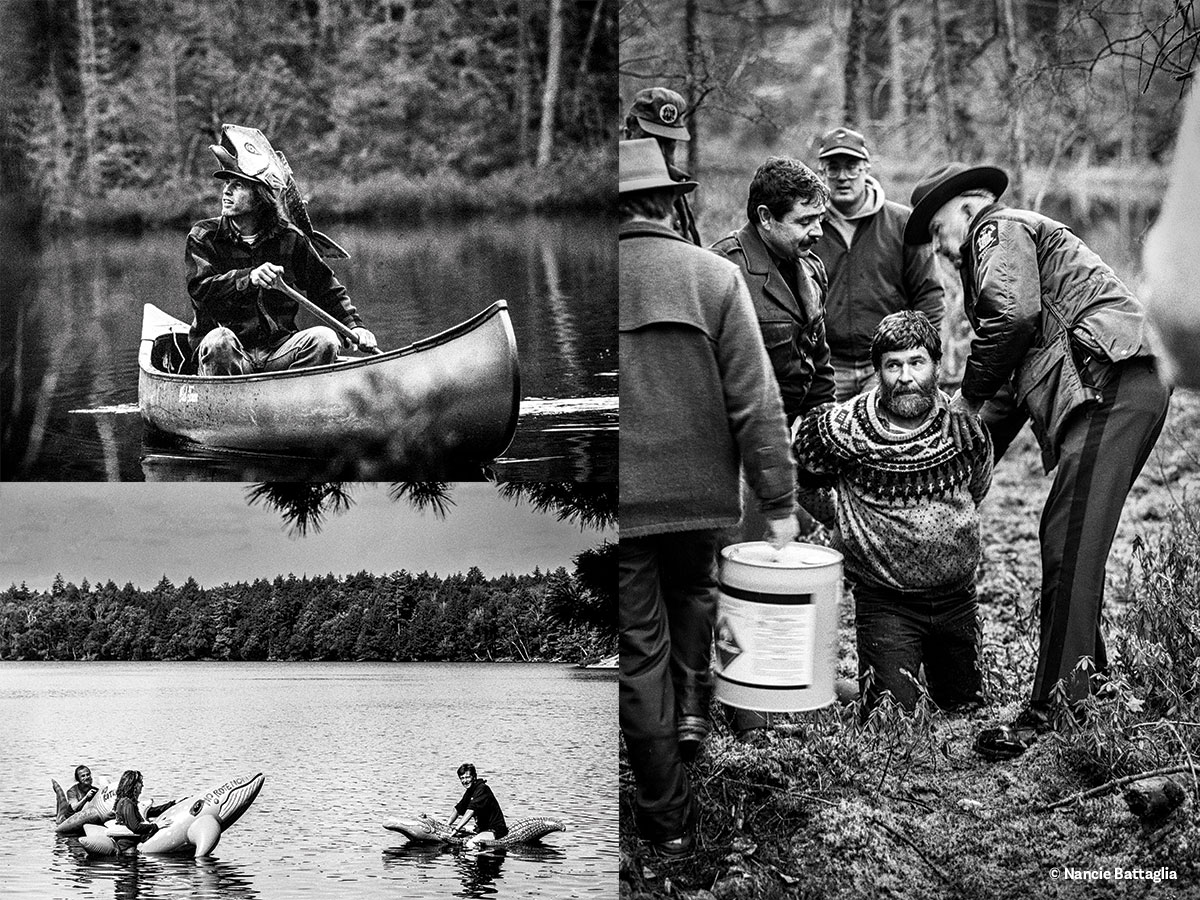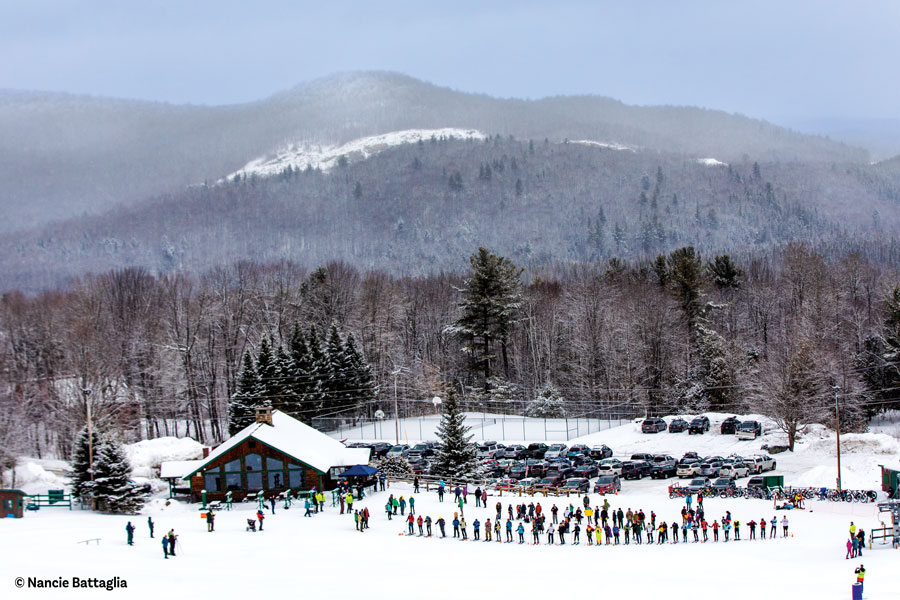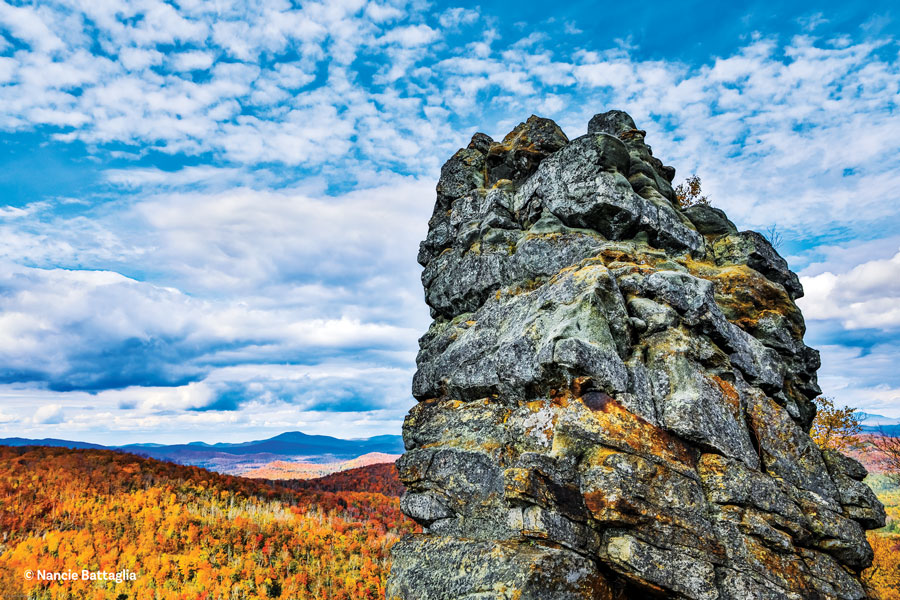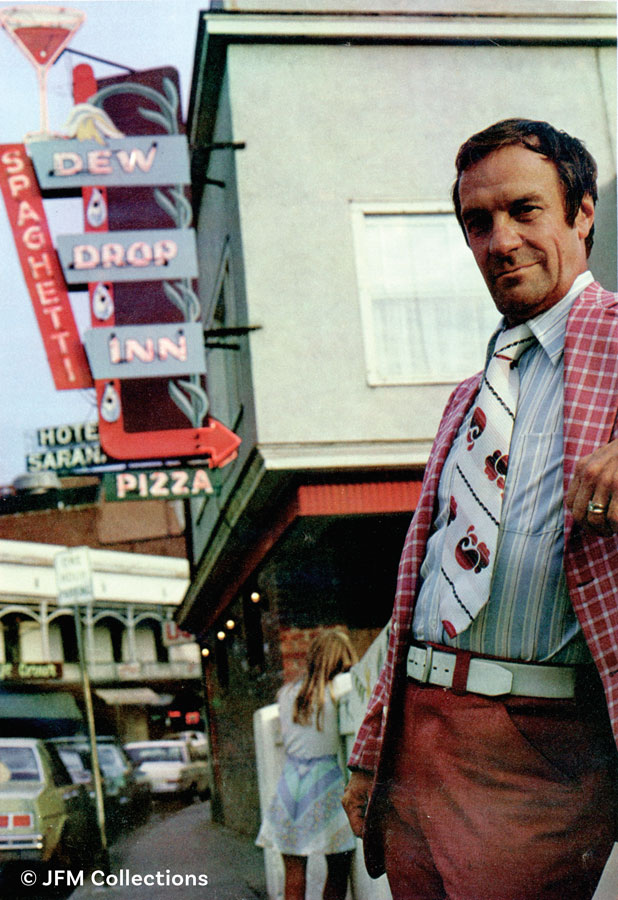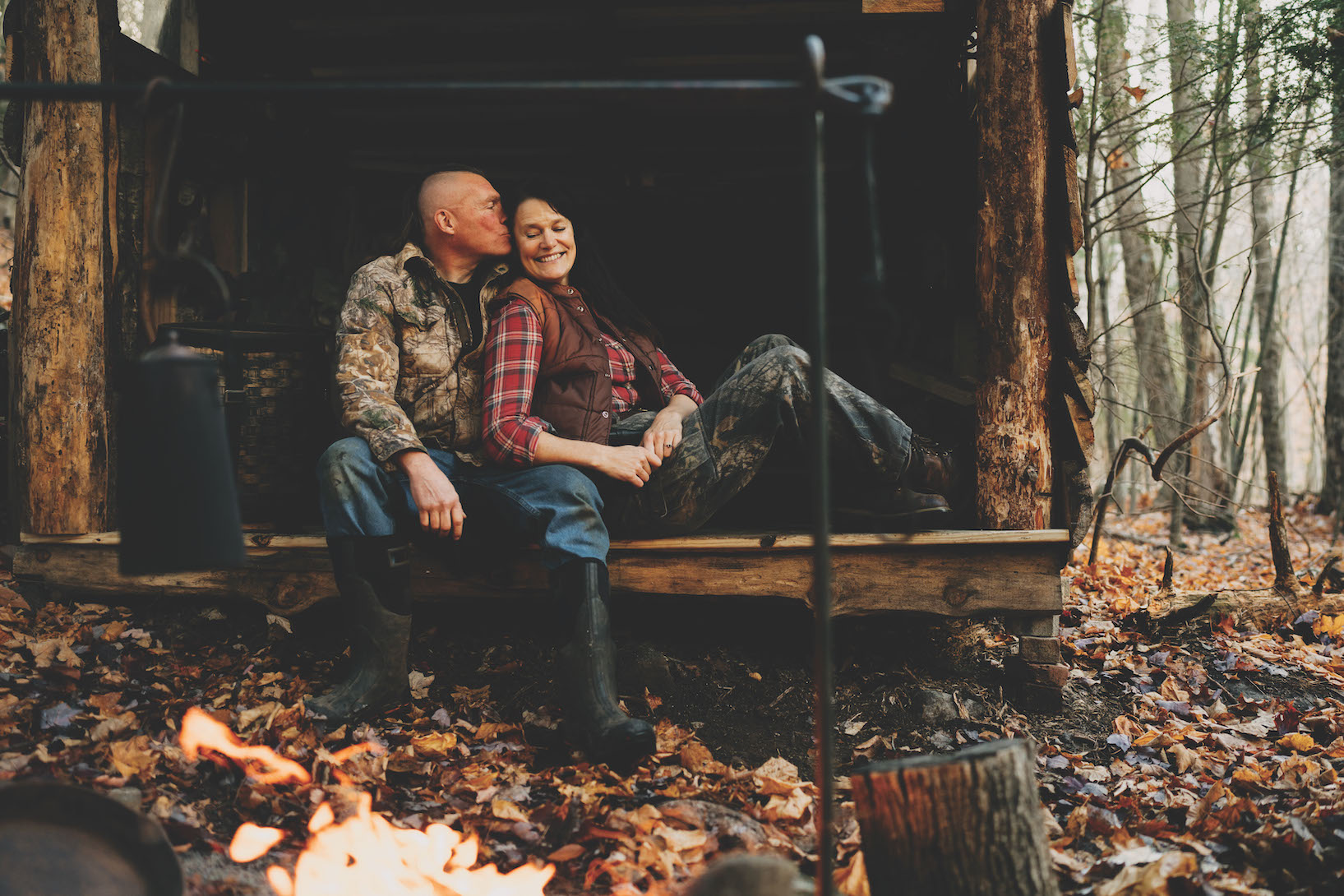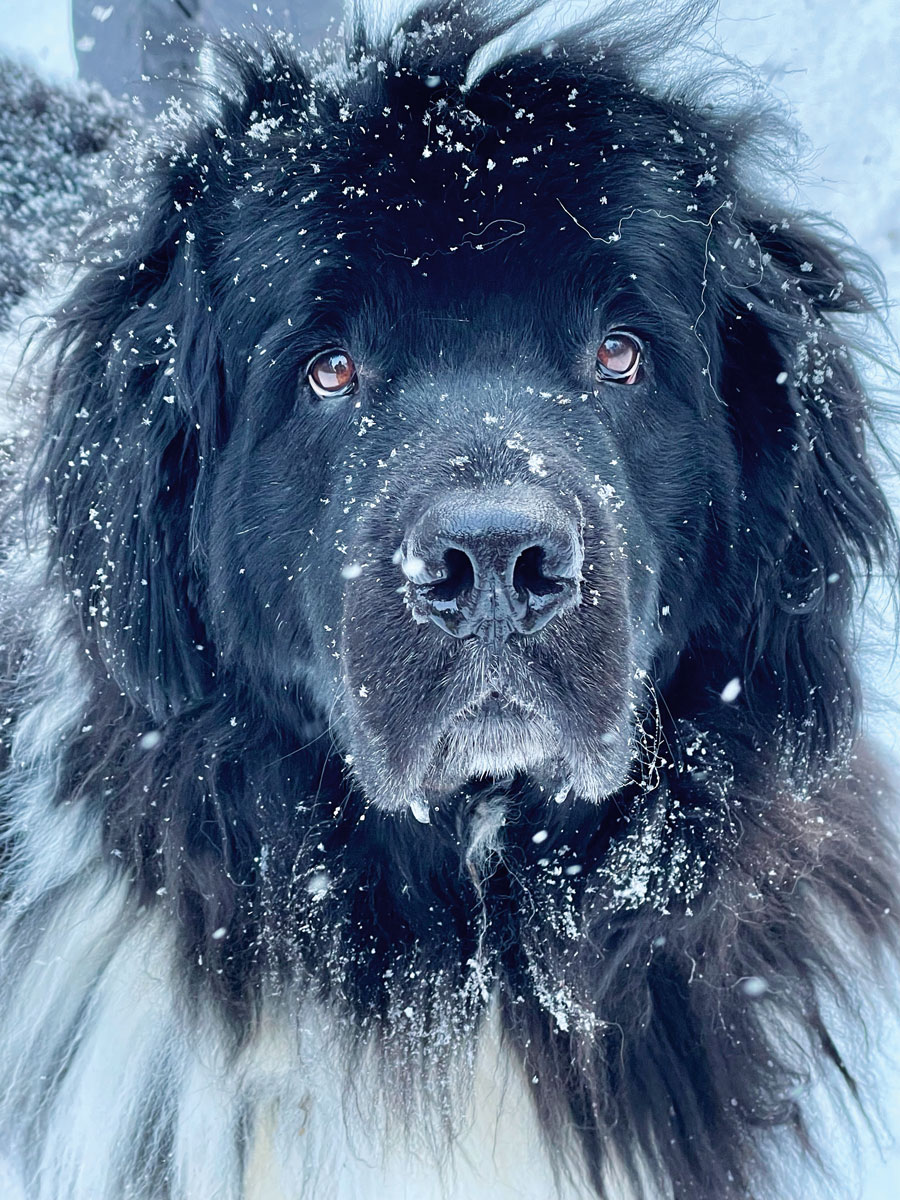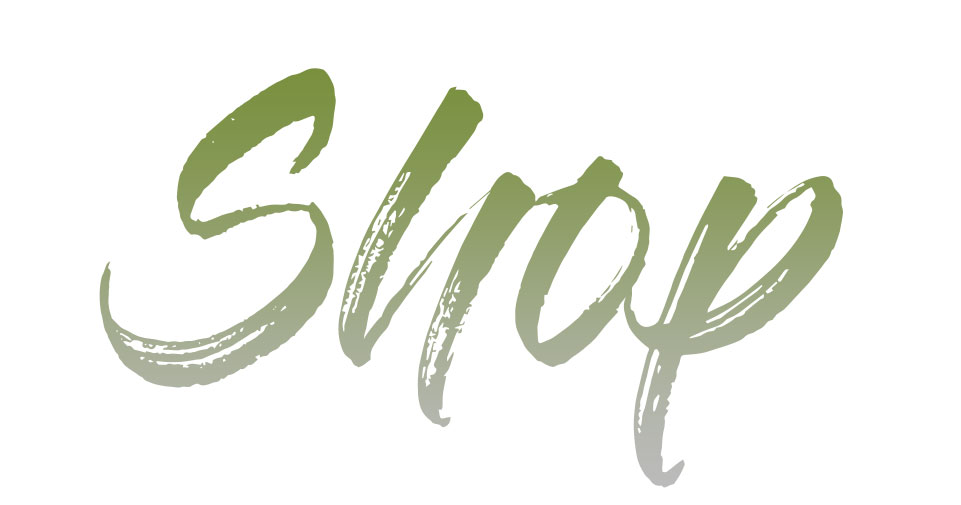The young couple and their four-year-old daughter were living in an apartment in Kharkiv, 20 miles from the Russian border. Rockets flew overhead. The thunder of explosions and plumes of choking smoke were constant. The parents feared for the safety of their daughter, who after months and months of war, was beginning to remember little else. They had to get out.
Five thousand miles away in Lake Placid, Beth Brunner was frustrated. She wanted to do something to help the Ukrainian people. Not just write a check, but something “direct.” Brunner searched, and eventually connected with the organization North America for Ukraine. “The mission,” she says, “is to help match Ukrainians, desperate to escape, with sponsors in the US.”
Brunner asked her husband, Frank, about his comfort in hosting a family in their home. “He knows me,” says Beth. “If I see someone hungry, I’ll feed them. If someone needs a place to live, I’ll help them.” A few months later, at the beginning of September, Beth was at JFK meeting the family from Kharkiv. “The look in their eyes—exhaustion and fear,” she recalls. They didn’t speak English, so they communicated through a translator app. In the car, the couple called a parent back in Ukraine, who told Beth, “‘Thank you for taking them in,’ and all of us tried not to cry.”
Kharkiv is the second largest city in Ukraine, with a population, as of 2021, of almost a million and a half people. It’s an industrial and cultural center—a mostly concrete sprawl punctuated by patches of green space. Which is why, as Beth steered north, the Ukrainians were stunned by the bigness of it all, the sky filled with rust-tinged mountains.
As they drove through Lake Placid village, they saw their country’s flag billowing from storefronts, hanging from fences and front doors. “Why?” they asked. Beth told them, “We support you.” She says, “That was an emotional moment, realizing that people in this rural place care and recognize what was happening to them. They were not expecting it.” (Lake Placid’s Dmitry Feld, USA Luge’s marketing manager, who grew up in Ukraine, led the initiative to hang 20 flags on Main Street, perhaps anticipating just such moments.)
The Brunners hosted the refugees in their finished basement, a roomy space with a bedroom, bath and private entrance. The four-year-old hit it off with the Brunners’ six-year-old son, and was adored by their two other children, ages nine and 12. The kids didn’t share a language, but they played boardgames and ran around the house laughing. “Watch kids if you want to see what humanity should be,” says Beth.
While the Brunner kids went to school and Beth, an oral surgeon with her own practice, and Frank, a schoolteacher, went to work, the Ukrainian family explored. They walked in the woods, through neighborhoods, visiting playgrounds and the local Hannaford supermarket. “That, with its size and abundance,” says Beth, “was an experience.” The man found a job assisting a mason in Saranac Lake. And he’d played soccer back home, so he helped Frank, who coaches one of Lake Placid’s youth commission teams.
In Ukraine, the war dragged on.
“It was political as far as they were concerned,” says Beth. “They saw the Russians as friends and neighbors. That’s why he didn’t want to fight. Why go to war against people so close by? That’s like going to war with Canadians just over the border.” The only time they were nationalistic, recalls Beth, was when the woman made borscht. “I thought it was Russian, but she corrected me: it is a Ukrainian dish.”
A month and a half after they’d arrived in the US, Beth drove the refugees to Burlington, this time to say goodbye. They’d made arrangements to live near friends in Seattle, where they’d secured an apartment and the man had a job offer. Their daughter would enroll at the city’s Ukrainian school. After hugs, “The plane took off into the sunset and I cried all the way home.”
Today the Brunners are in contact with their former guests, and Beth is finalizing plans to host a mother and her child while the husband stays in Ukraine to fight. Beth says she’ll continue to help. “Growing up outside of New York City … we all knew Holocaust survivors [and those who were lost]. Many of us were the children and the grandchildren of them. I remember what it was like to look into their eyes and imagine the horrors they had seen. We need to learn from our past. We need to help those who suffer.”
North America for Ukraine (na4Ukraine.org) assists refugees and sponsors via the US Department of Homeland Security’s Uniting for Ukraine program, which allows Ukrainians who are sponsored by eligible citizens a two-year residency in the US.

















